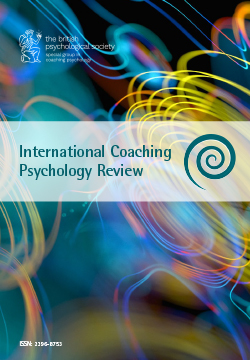The development of the Embodied, Dynamic and Inclusive (EDI) model of self-confidence; a conceptual model for use in executive coaching
This paper offers a model of self-confidence for use in executive coaching. Self-confidence is an important coaching topic, yet our understanding of what it is and how it can be developed is limited to narrower concepts of self-efficacy and self-esteem. Current approaches are static and focus on personal attributes, cognitive and motivational aspects over physiological experiences and pay insufficient attention to diversity. Using an embodied interview approach with a diverse sample of 27 employees, we propose an Embodied, Dynamic and Inclusive (EDI) model of self-confidence that contains the components of Authenticity, Competence and Connectedness. The EDI model is unique in that it captures the dynamics of Loss of Confidence and building a Confident Performance, and identifies the role Mindset plays. We discuss our main contribution to the literature; that confidence is embodied and dynamic. We also explore what impact our research has on coaching.
The development of the Embodied, Dynamic and Inclusive (EDI) model of self-confidence; a conceptual model for use in executive coaching
- Date Published
- Fri, 1st Jan 2021
- Publisher
- International Coaching Psychology Review
- Author
- Kane, A., Lewis, R., & Yarker, J.
- Reference
- Kane, A., Lewis, R., & Yarker, J (2021). The development of the Embodied, Dynamic and Inclusive (EDI) model of self confidence. International Coaching Psychology Review, 16 (1).
- Website
- https://explore.bps.org.uk/content/bpsicpr/16/1/6
- Categories
- Keywords
- Confidence, Executive Coaching, Self-efficacy, Self-esteem
This paper offers a model of self-confidence for use in executive coaching. Self-confidence is an important coaching topic, yet our understanding of what it is and how it can be developed is limited to narrower concepts of self-efficacy and self-esteem. Current approaches are static and focus on personal attributes, cognitive and motivational aspects over physiological experiences and pay insufficient attention to diversity. Using an embodied interview approach with a diverse sample of 27 employees, we propose an Embodied, Dynamic and Inclusive (EDI) model of self-confidence that contains the components of Authenticity, Competence and Connectedness. The EDI model is unique in that it captures the dynamics of Loss of Confidence and building a Confident Performance, and identifies the role Mindset plays. We discuss our main contribution to the literature; that confidence is embodied and dynamic. We also explore what impact our research has on coaching.


